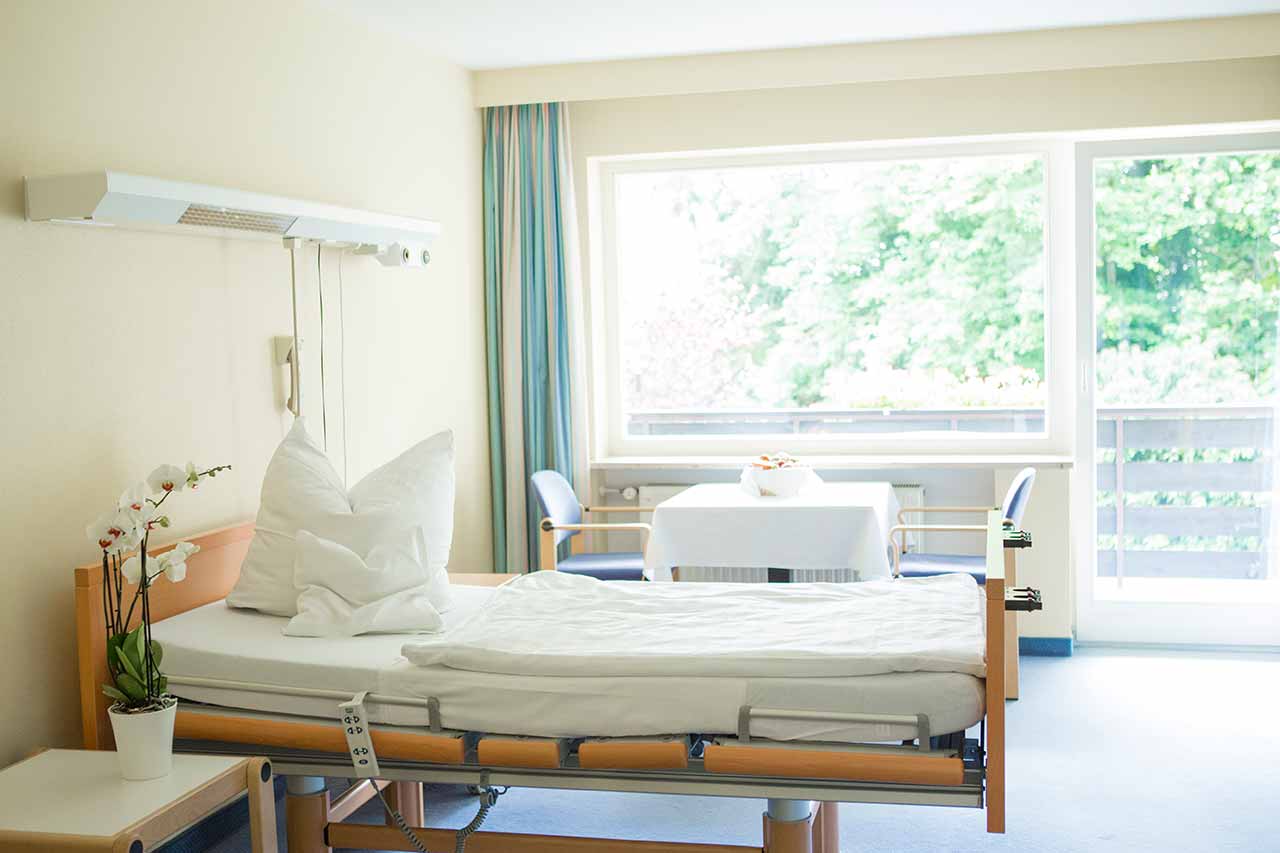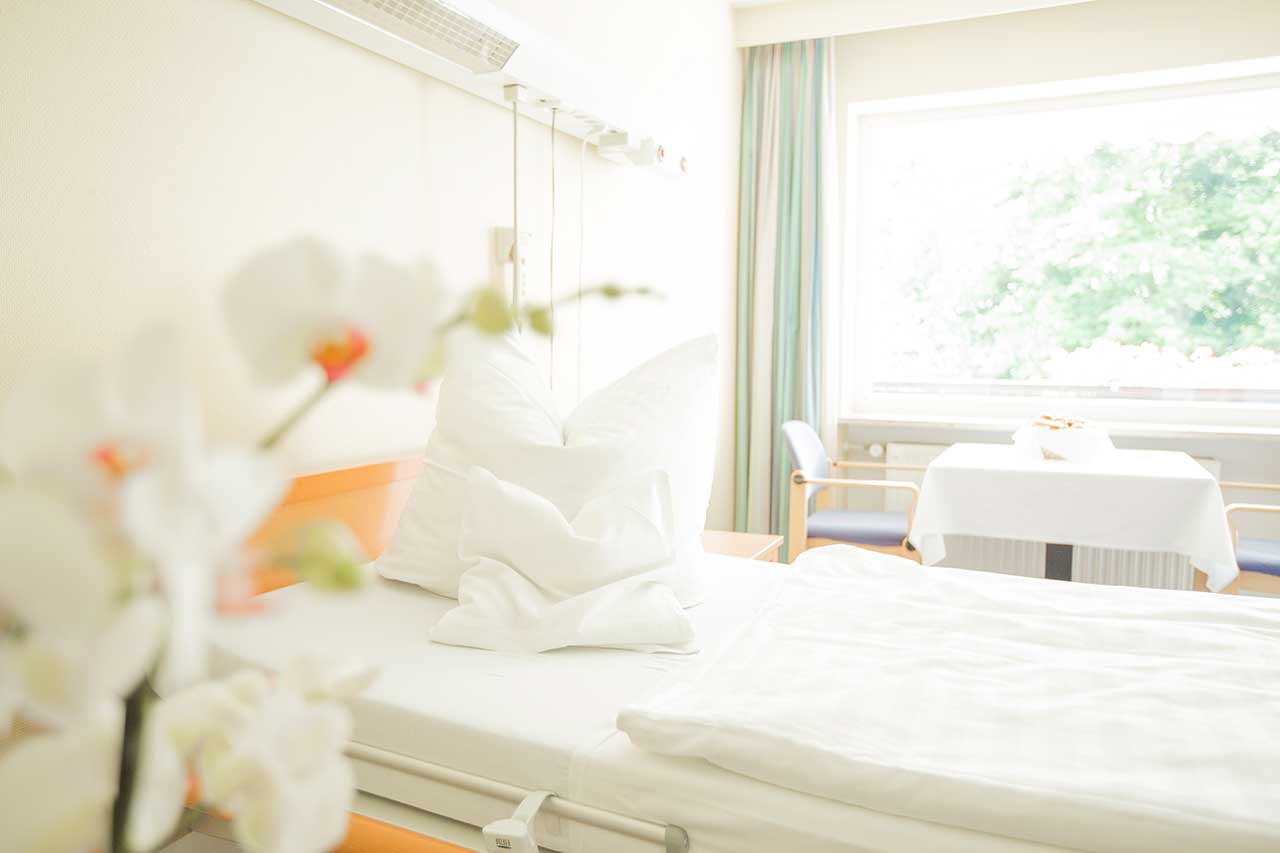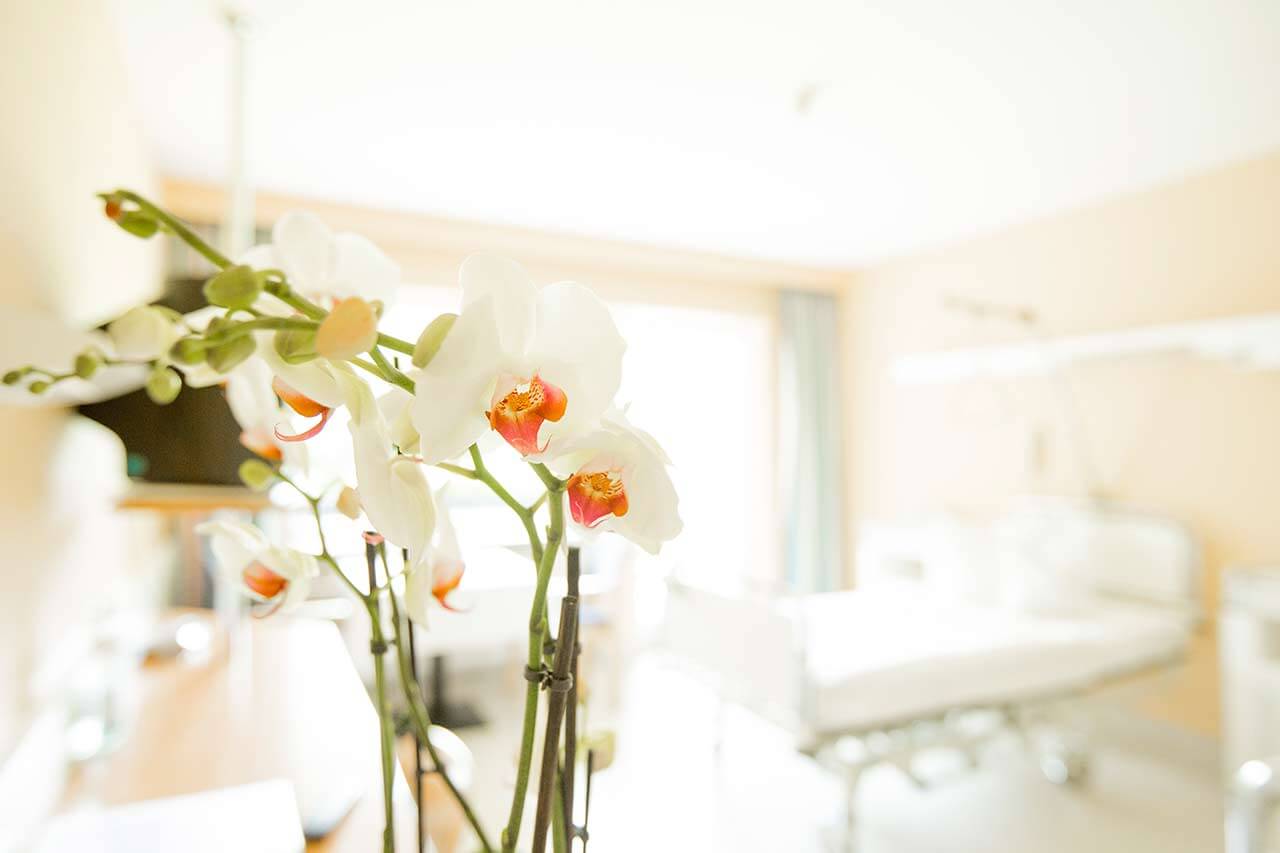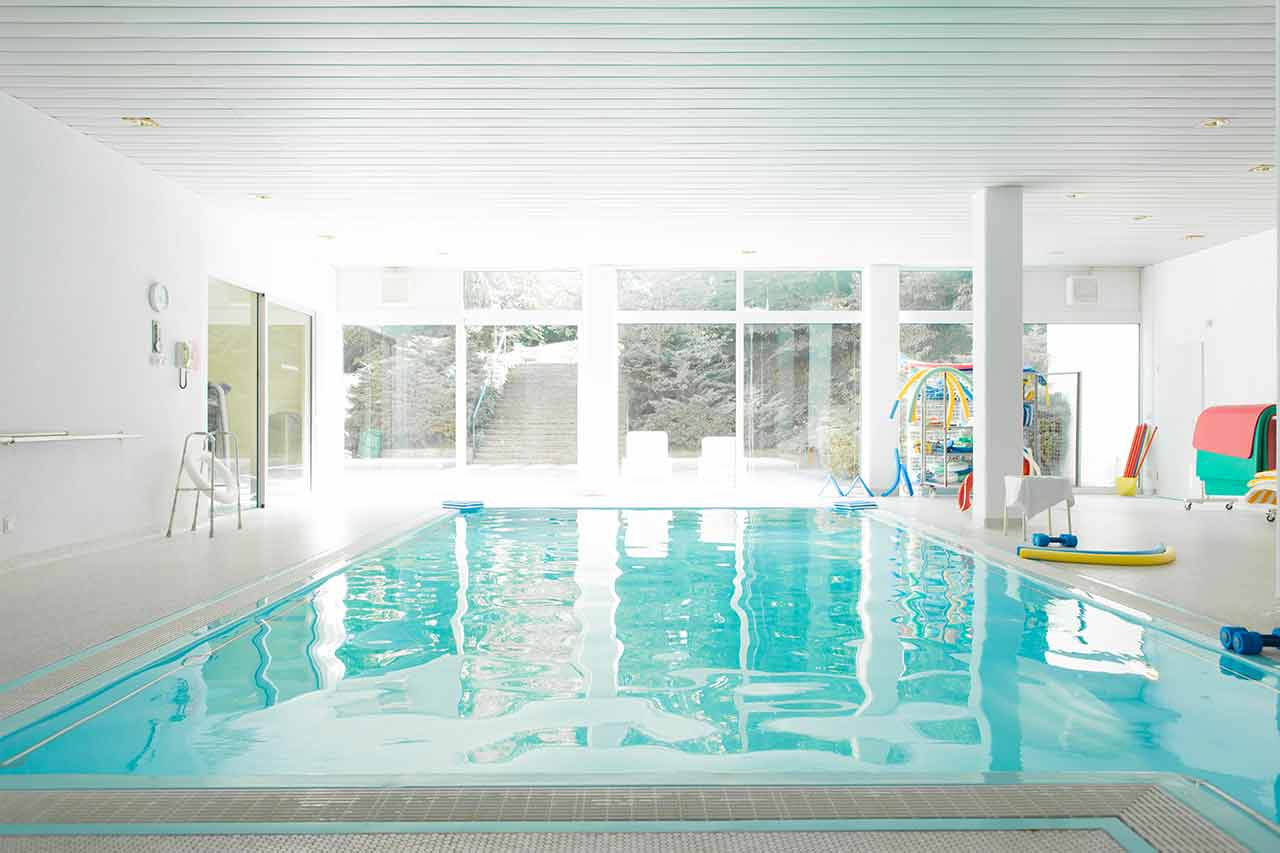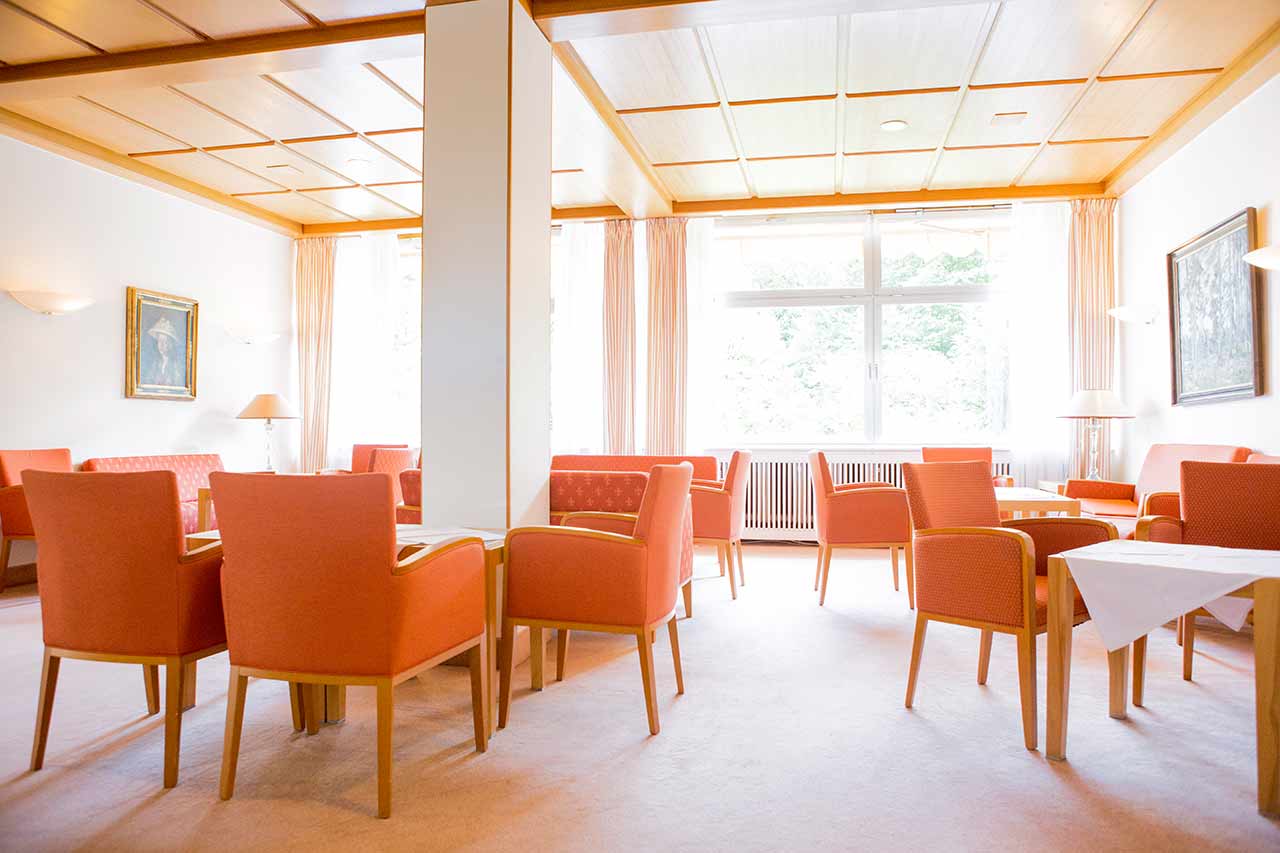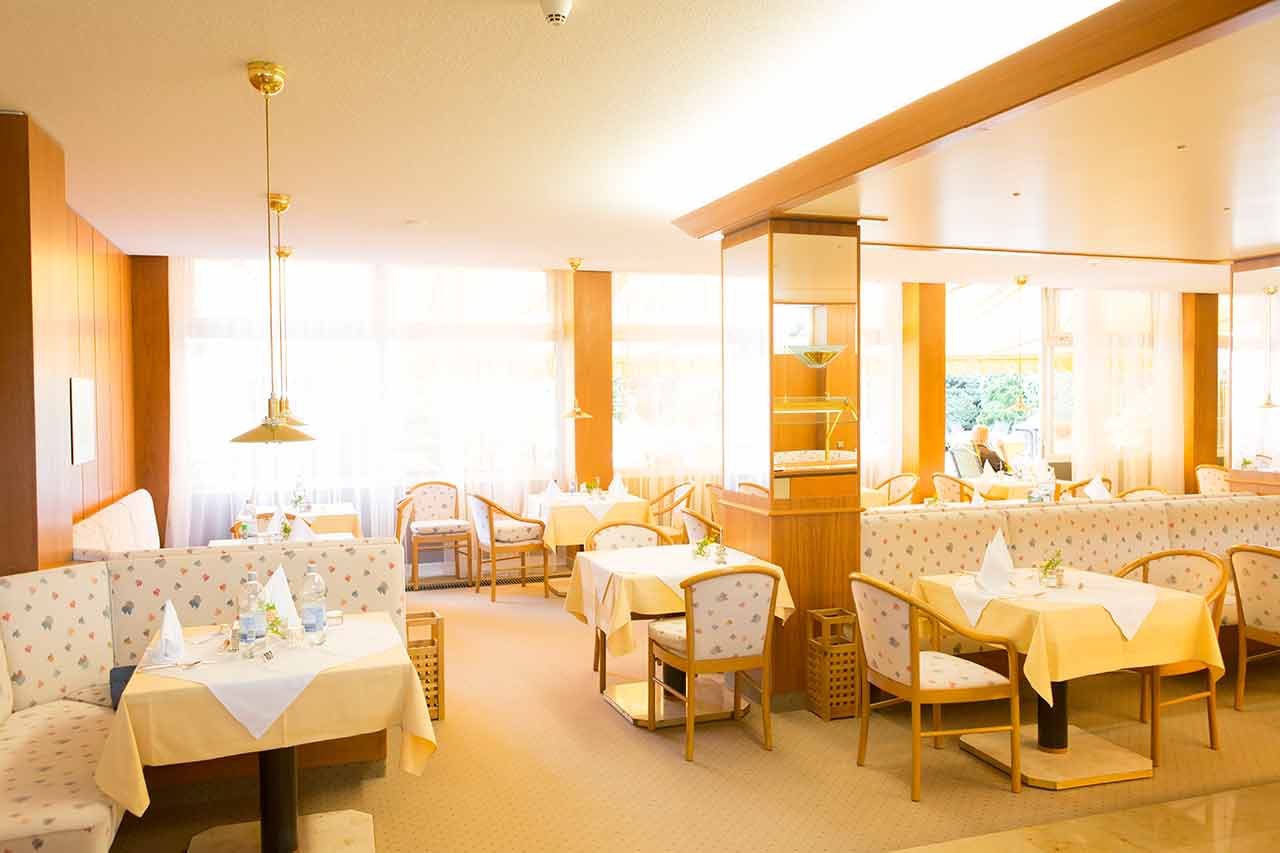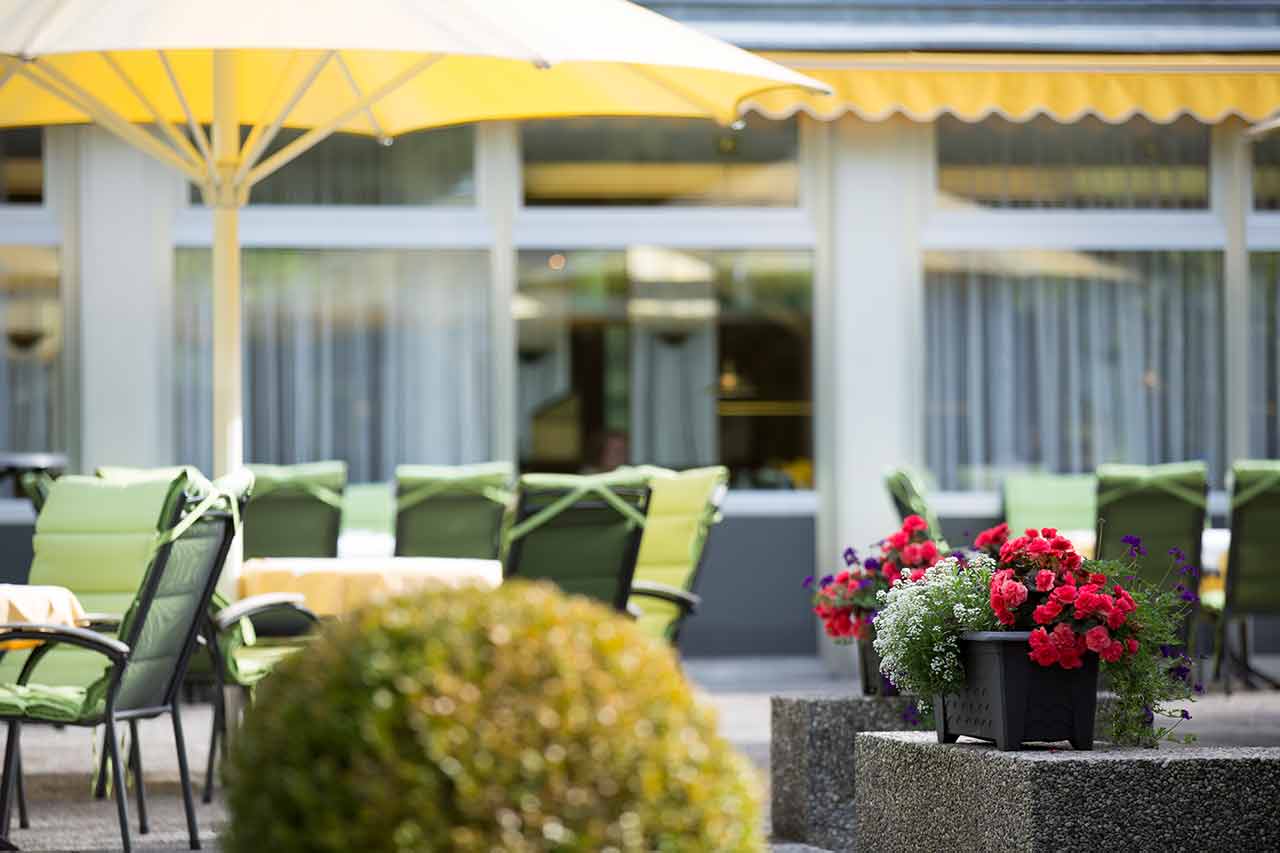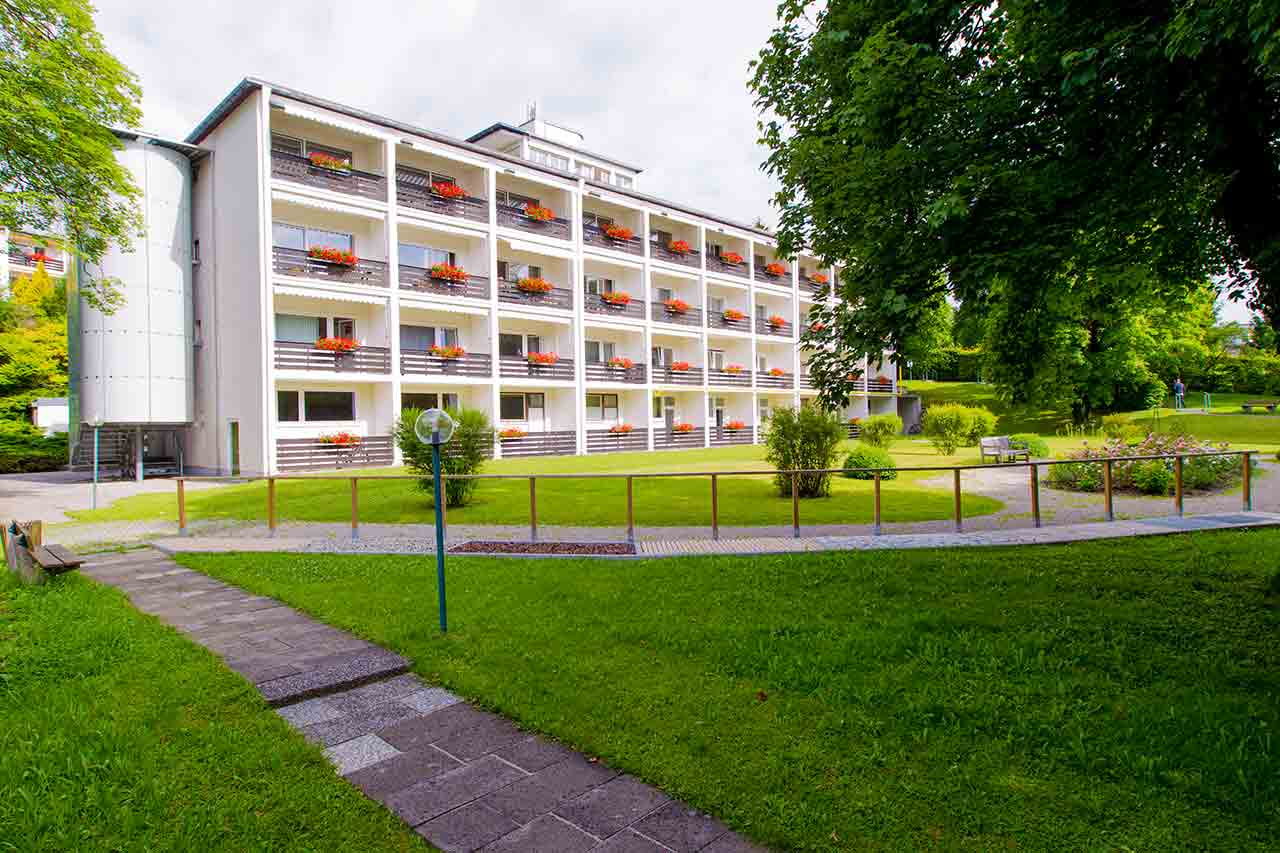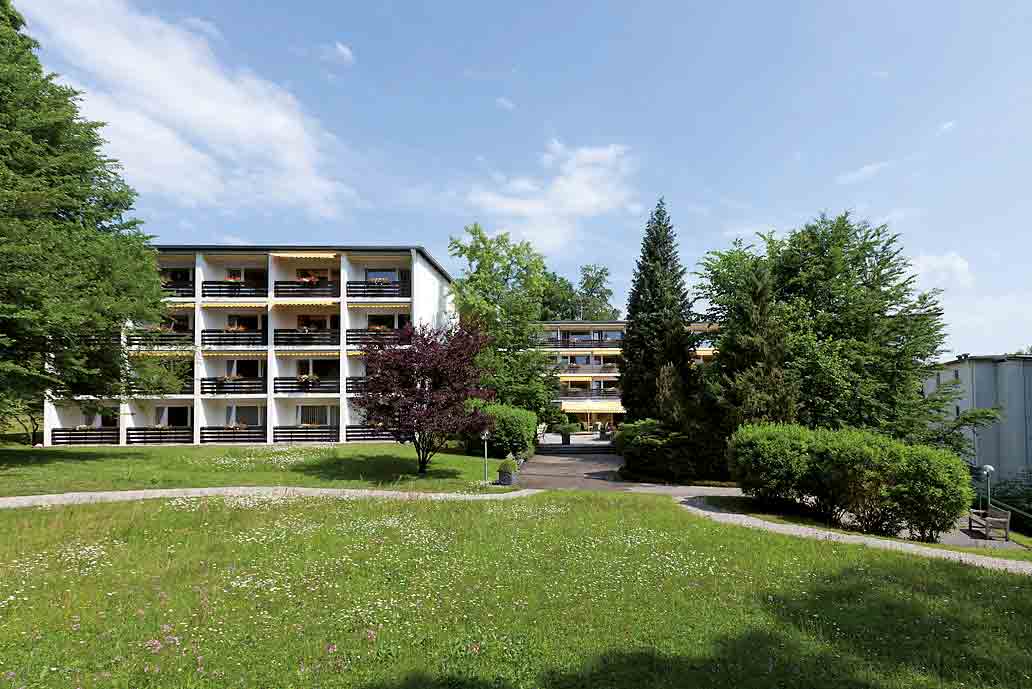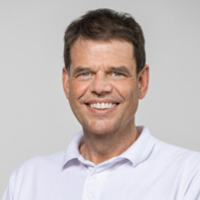
The program includes:
- Primary presentation in the clinic
- medical history, including family history
- complex neurological and orthopedic examinations
- CT / MRI / X-ray examination
- complex neurophysiological examinations
- individual rehabilitation program, which includes:
- propriozeptive neuromuskuläre fazilitation (PNF)
- transcranial magnetic stimulation (TNS)
- orofacial stimulation of Castillo Morales
- functional propriotrening
- various methods of respiratory gymnastics
- Wii Fit training in the use of the balance
- neuropsychological therapy
- functional therapy of the upper extremities (ArmeoSpring)
- functional electrical stimulation / neurostimulation
- kinesitherapy (physiotherapy)
- biocontrol with feedback
- healing deep muscle massage
- neuromuscular electrostimulation
- acupuncture of spasticity and pain syndromes
- occupational therapy
- psycho-educational classes
- logopedia in the language of the patient
- Individual physiotherapy
- microcurrent treatment
- fangotherapy / cryotherapy
- antispasmodic drug therapy
- mobilization of limb joints
- hydrotherapy / massage therapy / reflexology
- training on special trainers
- and etc.
- nurses care
- stay in the hospital with full board
- symptomatic and drug therapy
Service
You may also book:
 BookingHealth Price from:
BookingHealth Price from:
About the department
The Department of Neurology and Neurological Rehabilitation at the Rehabilitation Clinic Benedictus Krankenhaus Feldafing offers high quality emergency care and the full range of rehabilitation measures for patients with diseases of the nervous system. Particular attention is paid to early rehabilitation, which begins during the acute period of the disease, when the patient is in the intensive care unit. It is early rehabilitation that avoids the irreversible loss of vital functions of the nervous system. The department's specialists have excellent qualifications in the rehabilitation of stroke patients. The department's therapeutic options include various methods of physiotherapy, therapeutic exercise, occupational therapy, speech therapy, psychological and neuropsychological care. The rehabilitation program is developed individually for each patient after comprehensive diagnostics, which allows for assessing his neurological status and determining the goals of rehabilitation. The Chief Physician of the department is Prof. Dr. med. Dirk Sander.
The success of rehabilitation largely depends on when the first rehabilitation measures are applied. The department's specialists are convinced that the initiation of rehabilitation at the stage of providing emergency care to a patient with a neurological disorder significantly increases the chances of maximum restoration of the lost functions of the nervous system. The accurate and high-quality diagnostics play a particularly important role in early rehabilitation, and therefore the department has cutting-edge diagnostic equipment for various studies, including electroencephalography, electromyography, extra- and transcranial duplex sonography, videoendoscopy, recording of evoked potentials and assessment of nerve conduction velocity. X-rays, computed tomography and magnetic resonance imaging can also be conducted, if required. The goal of early rehabilitation (phase B) is to achieve the patient's consciousness and prepare him for further phases of rehabilitation, which require interaction with rehabilitation therapists.
As soon as the patient is conscious and ready to interact with doctors, the rehabilitation phase D begins. The task of the department's specialists at this stage of treatment is to restore the patient's ability to self-care in everyday life. As a rule, initially the patient relearns to get out of bed, sit down, etc. Then rehabilitation therapists resort to methods that restore gait, fine motor skills of the hands, and gross motor skills. For this purpose, the department's doctors have various physiotherapy techniques, robotic equipment, for example, the latest generation Lokomat device for gait training, and other resources. Also, the patients receive medical care from the specialists in speech therapy, who help them get rid of speech and language impairment, swallowing disorders, and voice disorders. The department's neuropsychologists are engaged in the restoration of cognitive functions. Their areas of expertise include behavioral therapy, restoration of attention concentration, planning and problem solving skills. All rehabilitation activities take place under the strict supervision of highly specialized doctors, who adjust the intensity of therapy in accordance with the patient's needs. Depending on the specific clinical situation and the goals of rehabilitation, it can be carried out individually or in groups.
The department specializes in rehabilitation for the following neurological disorders:
- Stroke
- Traumatic brain injury
- Inflammatory diseases of the nervous system
- Meningitis
- Multiple sclerosis
- Guillain-Barré syndrome
- Critical conditions in myopathies and neuropathies
- Movement disorders of neurological origin
- Parkinson's disease
- Cerebellar ataxia
- Dystonias
- Inflammatory lesions of the muscular system and muscle paralysis after neurosurgical interventions
- Diseases and injuries of the peripheral nervous system
- Other disorders and pathological conditions
The department offers the following rehabilitation measures:
- Physiotherapy
- Walking and stamina training
- Walking training using special simulators
- Walking and gait training, including on treadmills
- Balance and coordination training
- Respiratory gymnastics and endurance training
- Thermotherapy and mud wraps
- Massages and electrotherapy
- Wheelchair skills training
- Mobility aid skills training
- Special physiotherapy methods
- Manual lymphatic drainage
- Manual therapy
- Foot reflex zone massage
- Bobath concept
- Proprioceptive neuromuscular facilitation (PNF)
- McKenzie method
- Affolter approach
- Myofascial release therapy
- Massages (classical massage, connective tissue massage, acupuncture massage)
- Kinesiology taping
- Craniosacral therapy
- Nordic walking
- Medical training therapy
- Therapeutic exercise in water
- Speech therapy
- Treatment of swallowing disorders (dysphagia)
- Treatment of speech disorders (aphasia, dysarthria)
- Treatment of voice disorders (dysphonia)
- Treatment of speech, language and swallowing disorders in dementia
- Occupational therapy
- Training to restore the skills of eating, personal hygiene, dressing, etc.
- Training to restore skills in housekeeping, cooking, shopping
- Training to improve attention, concentration and orientation in space
- Training to restore fine and gross hand motor skills (innovative Bi-Manu-Track, Rehaslide, Pablo, Armeo and Amadeo stimulators)
- Fine motor skills training
- Mirror therapy
- Neurologic music therapy
- Psychological care
- Neuropsychology
- Assessment of concentration, memory, ability to plan and solve problems
- Assessment of suitability for driving a vehicle
- Behavioral therapy
- Biofeedback and psychophysiological monitoring
- Relaxation and visualization techniques
- Conversations with the patient about the impact of the disease on his psycho-emotional state and related assistance
- Neuropsychology
- Other rehabilitation measures
Curriculum vitae
Higher Education and Professional Career
- 1984 -1990 Study of Human Medicine, Faculty of Medicine, University of Göttingen.
- 1990 - 1998 Highly specialized training for board certification, Rechts der Isar Hospital Munich.
- 1998 - 2006 Senior Physician, then Senior physician with management responsibilities, Department of Neurology at the University Hospital Rechts der Isar Munich.
- 1999 Habilitation in Neurology.
- 2003 Extraordinary Professorship at the Faculty of Medicine of the Technical University of Munich.
- 2006 - 2010 Chief Physician and Medical Director of the Neurological Rehabilitation Clinic Medical Park Loipl, Bischofswiesen.
- Since 2010 Physician with management responsibilities, then Chief Physician of the Department of Neurology and Neurological Rehabilitation at the Rehabilitation Clinic Benedictus Krankenhaus Feldafing/
Clinical Interests
- Prevention, emergency treatment and rehabilitation for stroke.
- Treatment of movement disorders and inflammatory diseases of the nervous system.
Memberships in Professional Societies
- German Society of Neurology (DGN).
- German Society for Neurocritical Care and Emergency Medicine (DGNI).
- German Society for Clinical Neurophysiology (DGKN).
- German Society for Ultrasound in Medicine (DEGUM).
- German Stroke Society (DSG).
- Working Group for the Treatment of Brain Diseases of the German Society of Neurology (DGN).
- Working Group on Botulinum Toxin Application of the German Society of Neurology (DGN).
Photo of the doctor: (c) Benedictus Krankenhaus Feldafing
About hospital
The Rehabilitation Clinic Benedictus Krankenhaus Feldafing is a progressive highly specialized medical facility with a good reputation and well-known all over the world. The clinic specializes in restoring the patient's physical, intellectual and psychosocial abilities lost as a result of trauma or diseases of the nervous system. In addition, the clinic provides the full range of high quality rehabilitation measures for patients with diseases and injuries of the musculoskeletal system. The medical team of the health facility applies their own uniquely designed treatment regimens, which were developed on the basis of colossal clinical experience gained during many years of practice. Each clinical case is considered on an individual basis, which makes it possible to optimally adapt one or another treatment regimen for a particular patient in order to achieve his maximum possible independence in everyday life.
The doctors of the clinic provide rehabilitation in all phases. Nonetheless, the key focus is on early rehabilitation, which gives the patient the best chance of restoring almost all of the lost functions. The medical center successfully applies all available methods of modern rehabilitation medicine, including various types of physiotherapy, speech therapy, occupational therapy, psychological support, use of the latest generation simulators for training walking, fine motor skills of hands, gross motor skills, etc.
Special attention should be given to the professionalism of the entire medical team of the clinic. Both doctors and nursing staff work hand in hand for the benefit of their patients, supporting them on the way to regain their ability to self-care. The specialists use a multimodal therapeutic approach in their work, which implies the coordinated work of physiotherapists, occupational therapists, psychologists, speech therapists and therapeutic gymnastics specialists who jointly take care of the patient, monitor his progress, and, if necessary, adjust the rehabilitation program.
The outstanding results of the clinical work of the medical facility are confirmed by numerous quality certificates. According to the prestigious Frankfurt F.A.Z.-Institut information resource, the clinic has been at the top of the rating of German rehabilitation centers for two years in a row. For four years in a row, the reputable Focus medical journal has included the clinic in the rating of the best Orthopedic Rehabilitation Centers in Germany. The clinic is also certified in accordance with DIN EN ISO 9001.
Photo: (c) Benedictus Krankenhaus Feldafing
Accommodation in hospital
Patients rooms
The Rehabilitation Clinic Benedictus Krankenhaus Feldafing offers comfortable patient accommodation and a high level of service.
The modern patient rooms of the clinic have a beautiful balcony, while some of the rooms offer beautiful views of Lake Starnberg and the panorama of the Alps.
When designing the patient rooms, special attention was paid to ensuring that modern medical equipment (for example, centralized tracking of the monitor) meets the personal needs of the patient.
All patient rooms are comfortably furnished to meet the needs of each patient in the clinic. Each patient room has a toiletries set, a bathrobe, a flat-screen TV, a CD radio player, a DVD player, Wi-Fi, a telephone, a mobile refrigerator (if desired).
Meals and Menus
Every day, the patient and his accompanying person are offered a full and nutritious breakfast.
Along with the offered lunch menu, one can visit the clinic's restaurant. Every day you have a choice between three types of menus and the possibility to create an individual menu with the clinic's nutritionist for lunch and dinner.
At the request of the patient, it is possible to order fruit in the room.
Further details
Standard rooms include:
Accompanying person
During the inpatient program, an accompanying person may stay with the patient in the room or at a hotel. Our managers will help you choose the most suitable option.
Hotel
During the outpatient program, the patient may stay at the hotel. Our managers will help you choose the most suitable option.
